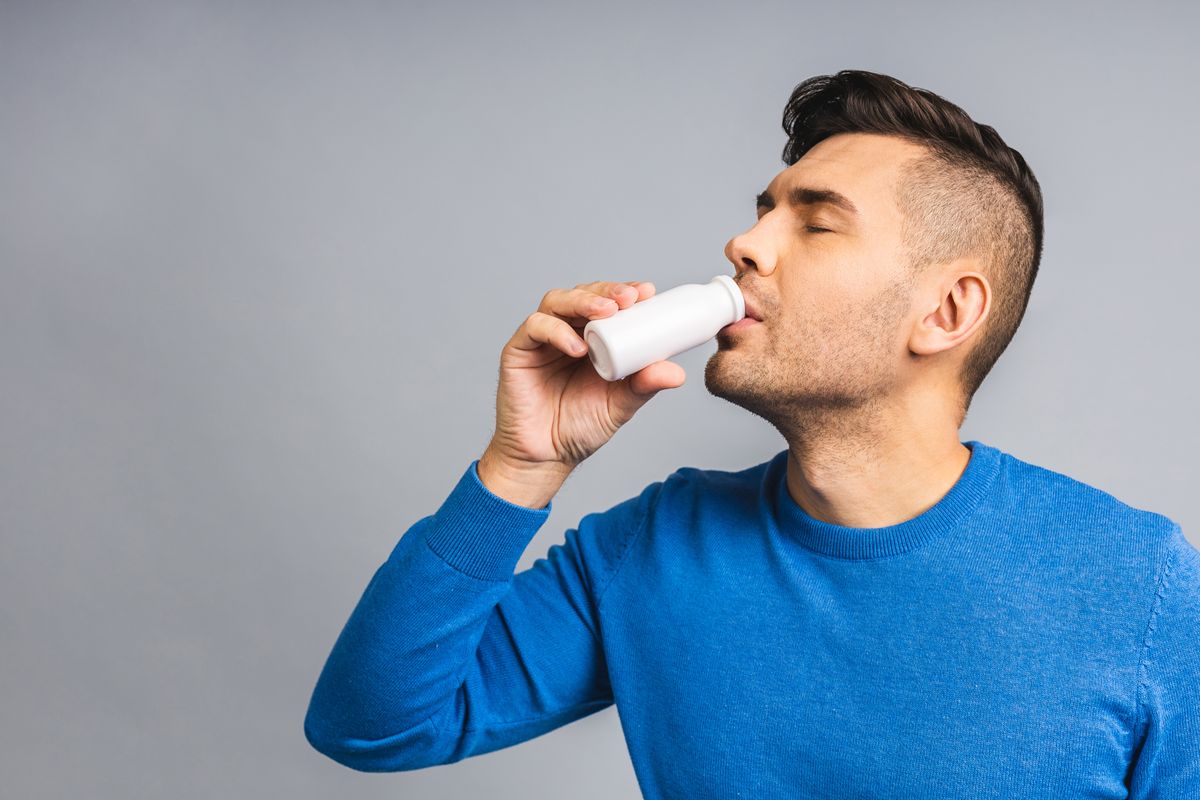Maintaining a healthy gut has far-reaching benefits, including improved digestion and reduced inflammation. Recognizing this, the food industry has swiftly incorporated beneficial bacteria, known as probiotics, into various everyday foods. Among the easiest and most enjoyable methods of increasing probiotic intake is by indulging in a delightful probiotic drink brimming with millions (or even billions) of beneficial microscopic bacteria.
Understanding Probiotics: Exploring Their Functions and Mechanisms
Probiotics, comprising living bacteria and yeast, play a crucial role in fostering a healthy microbiome by colonizing different parts of the body. Although beneficial bacteria can be found throughout our bodies, the gut is home to the most potent and concentrated strains. The National Institutes of Health highlight two common groups of probiotics: Lactobacillus and Bifidobacterium. However, it's important to note that not all probiotic species within these groups function in the same way.
According to the Cleveland Clinic, certain types of probiotics can aid in vitamin production, prevent harmful microbes from entering the bloodstream and causing illness, and even assist in the breakdown and absorption of medications and nutrients.
Overall, probiotics contribute to maintaining a healthy balance of beneficial bacteria in the body, effectively controlling harmful bacteria and bolstering the immune system. As these good bacteria establish themselves in the gut, they ferment indigestible foods and fibers, producing valuable substances such as short-chain fatty acids that possess unique health-promoting properties.
Analyzing the Health Benefits of Probiotic Drinks
Probiotic drinks often contain a diverse array of microorganisms and may provide additional advantages by supplying calories, protein, calcium, vitamin D, and various essential micronutrients.
Depending on the specific probiotic drink, you may obtain a similar quantity of microorganisms as you would from a supplement. However, it's crucial to keep in mind that, like supplements, probiotic drinks are not regulated by the FDA. Therefore, while the label may indicate the presence of probiotics, there is no guarantee that the drink actually contains the stated amount.
Key Considerations when Selecting a Probiotic Drink
When searching for a probiotic drink, it's advisable to look for "live active cultures" on the label, indicating the inclusion of specific strains. Additionally, it's worth examining the nutrition facts. Some drinks may provide enough calories and macronutrients to serve as a substantial snack, while others might primarily consist of water with added probiotics and micronutrients.
Discover the Finest Probiotic Drinks, According to Dietitians
Dietitians have identified some of the best probiotic drinks for promoting a healthy gut. Here are their top recommendations, along with their per serving details:
1) Lifeway Kefir, Plain, Lowfat
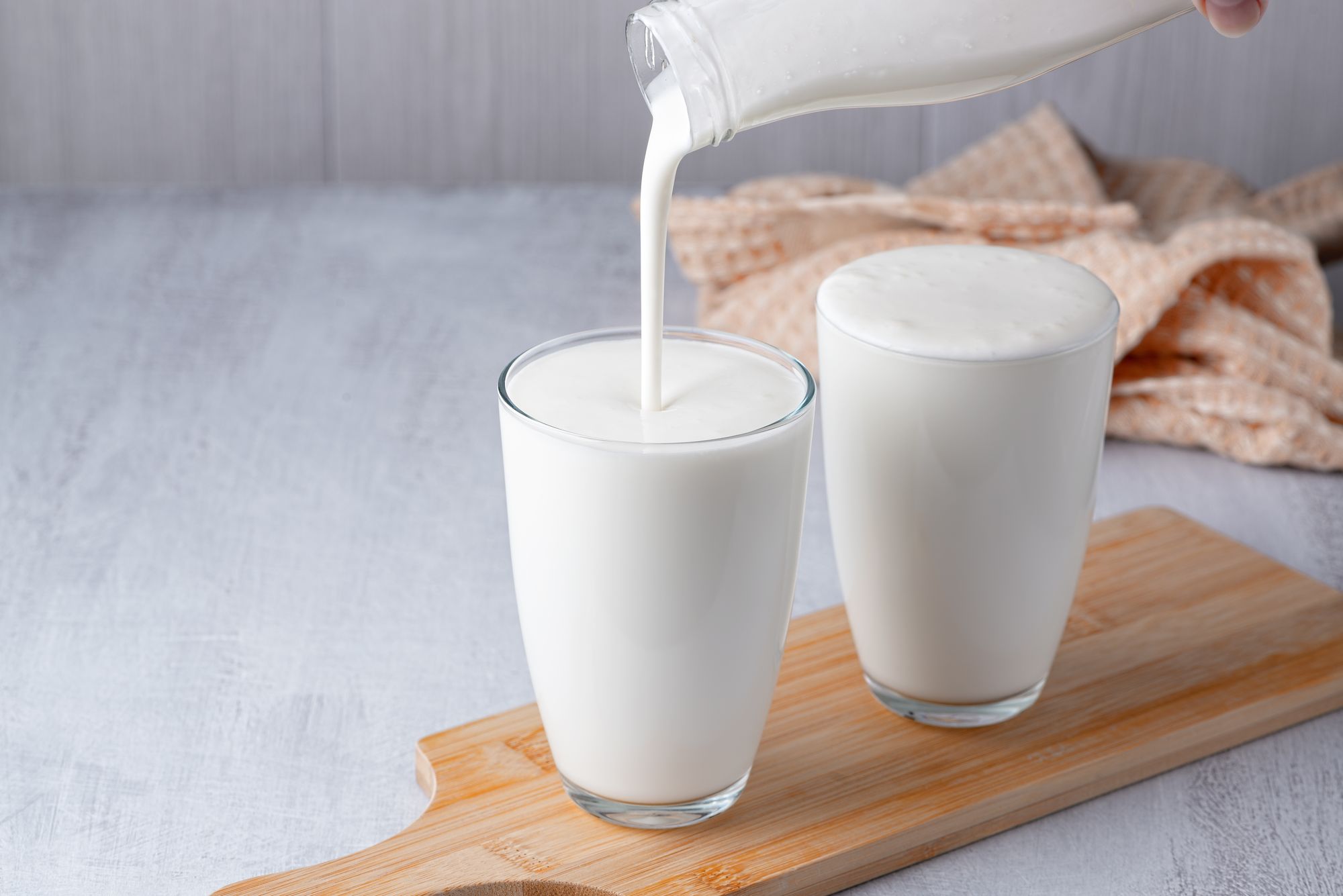
Per serving (1 cup): 110 calories, 2g fat (1.5g saturated fat), 120mg sodium, 9g carbs (0g fiber, 0g added sugar), 10g protein
Lifeway Kefir is a cultured milk product similar to a liquid yogurt drink with a touch of effervescence. It surpasses yogurt in probiotic content, offering about 10 grams of protein per cup. It is also an excellent source of calcium and vitamin D. Enjoy plain kefir on its own or use it as a substitute for milk or yogurt in your favorite smoothie.
2) GoodBelly Straight Shots
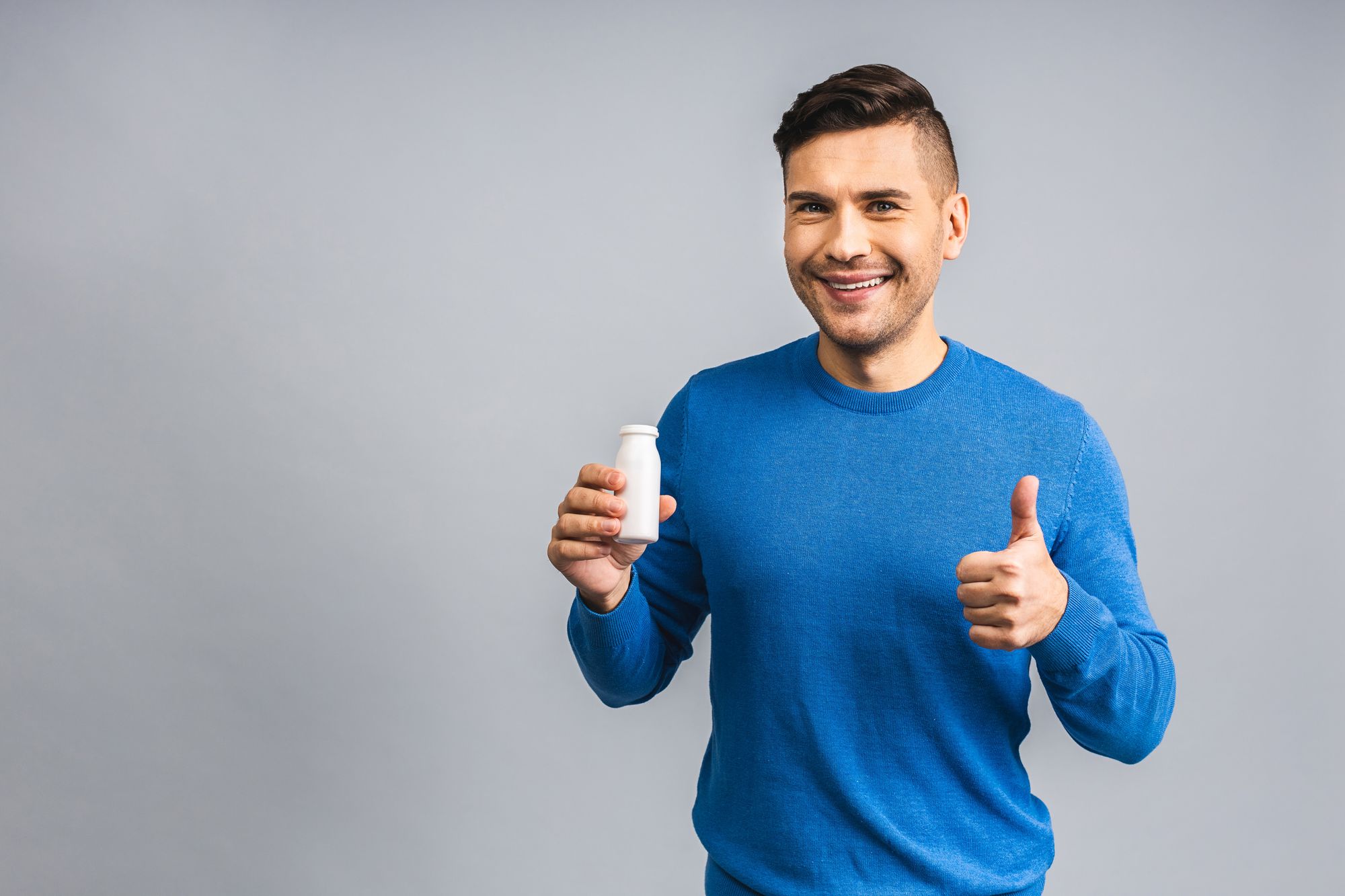
Per serving (1 bottle - 80ml): 30 calories, 0g fat (0g saturated fat), 0mg sodium, 6g carbs (0g added sugar), 1g protein
GoodBelly Straight Shots are a convenient option for digestive health, providing 20 billion probiotic cultures per serving without any added sugar. The grab-and-go packaging makes it effortless to incorporate these potent probiotics into your daily routine.
3) Good Culture Probiotic Milk, 2% Reduced Fat
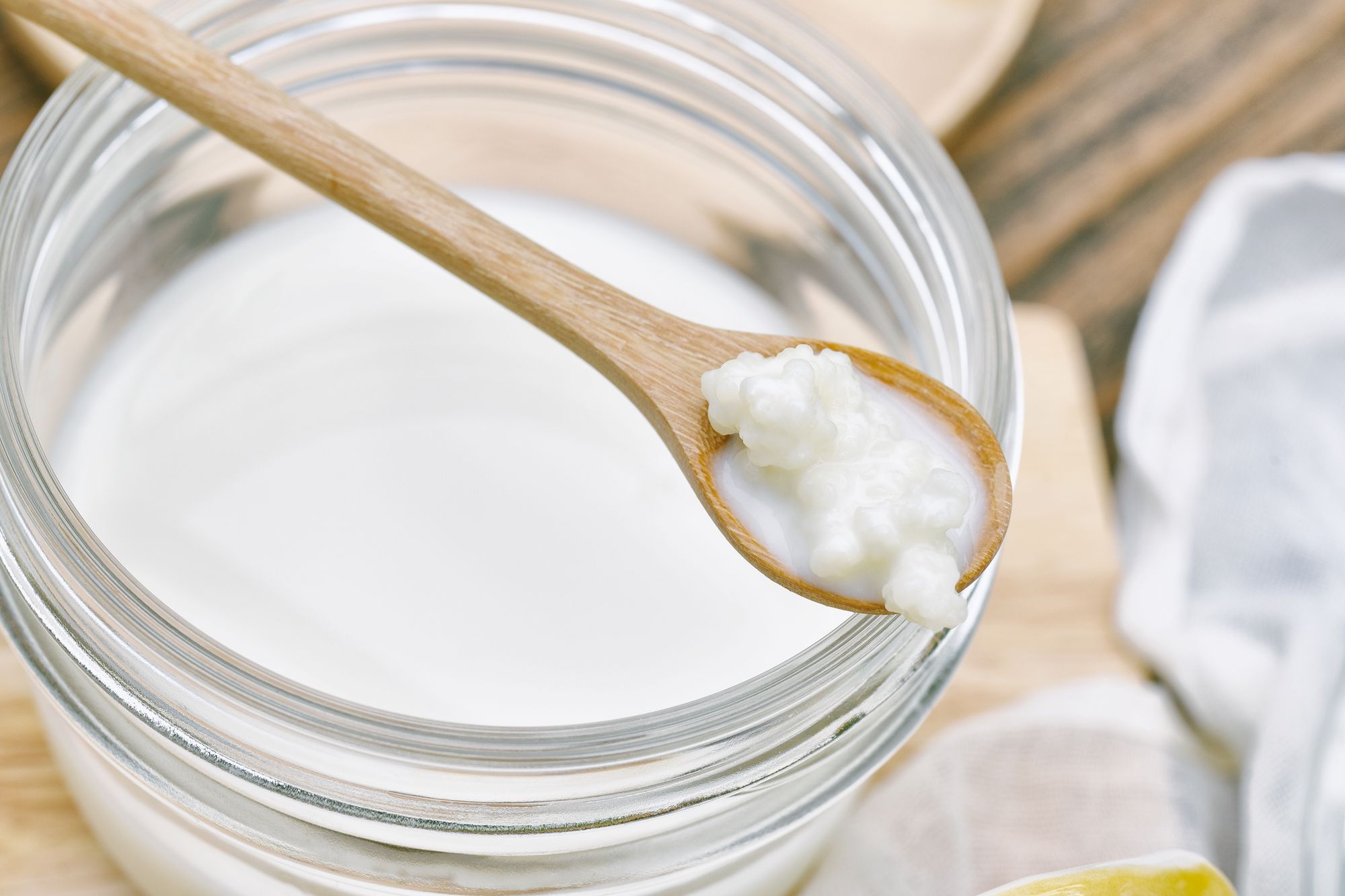
Per serving (1 cup): 130 calories, 5g fat (3g saturated fat), 125mg sodium, 13g carbs (0g fiber, 0g added sugar), 8g protein
Good Culture is renowned for its probiotic cottage cheese, but their cultured milk is gaining popularity. It tastes just like regular milk and can be used in the same way. Each 12-ounce serving contains 1 billion probiotic cultures along with vitamin D, calcium, and protein. Moreover, it is lactose-free, allowing even lactose-intolerant individuals to benefit from its gut-healing properties.
4) Chobani Complete Greek Yogurt Drink
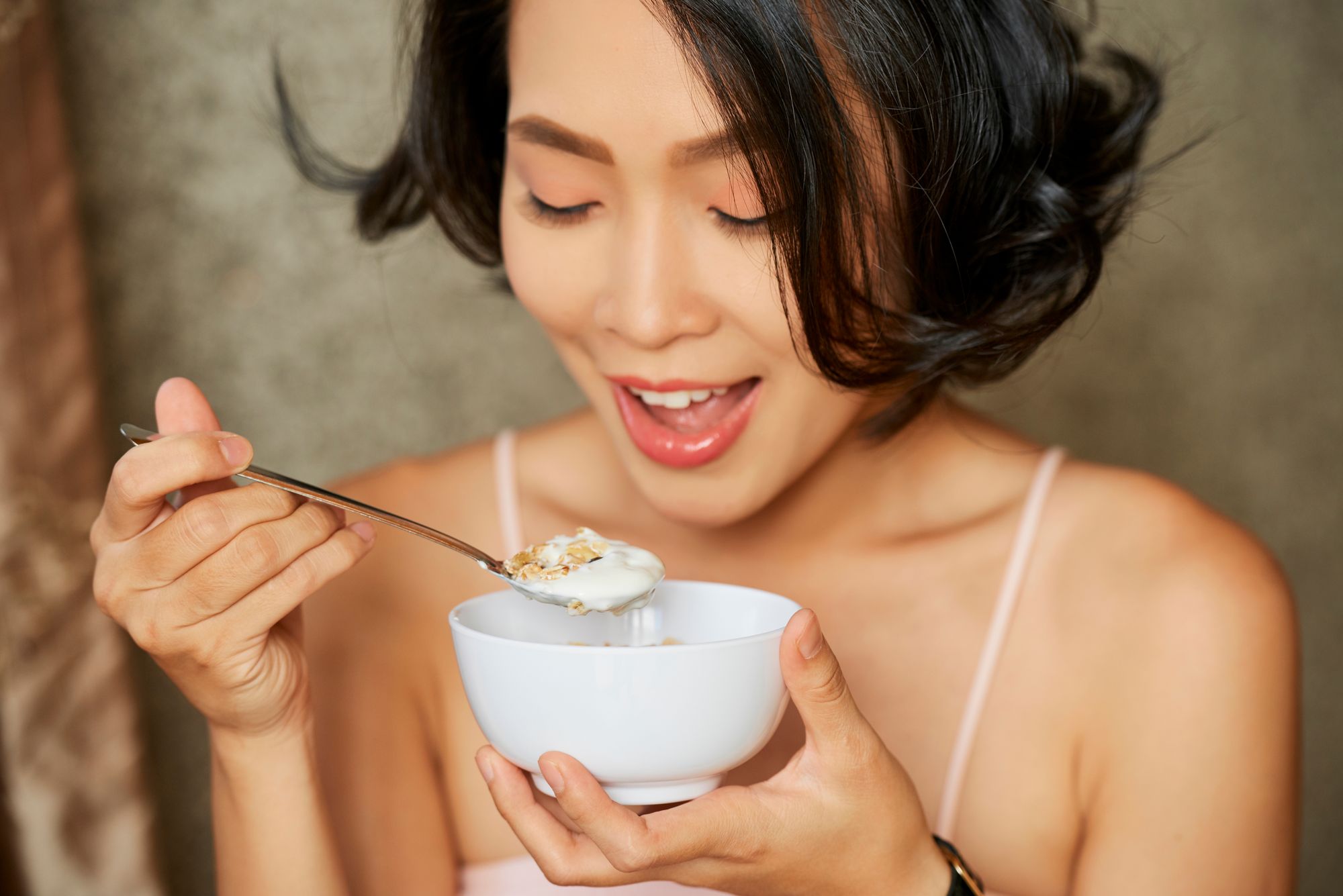
Per serving (one 10-ounce bottle): 170 calories, 2.5g fat (1.5g saturated fat), 115mg sodium, 16g carbs (3g fiber, 0g added sugar), 20g protein
Chobani Complete Greek Yogurt Drinks are a satisfying snack that promotes a healthy gut. They provide a significant boost of filling protein while helping to build a robust microbiome. These yogurt drinks also contain added prebiotics, and for an extra gut-friendly fiber boost, they can be paired with fruit.
5) Humm Probiotic Seltzer, Peach
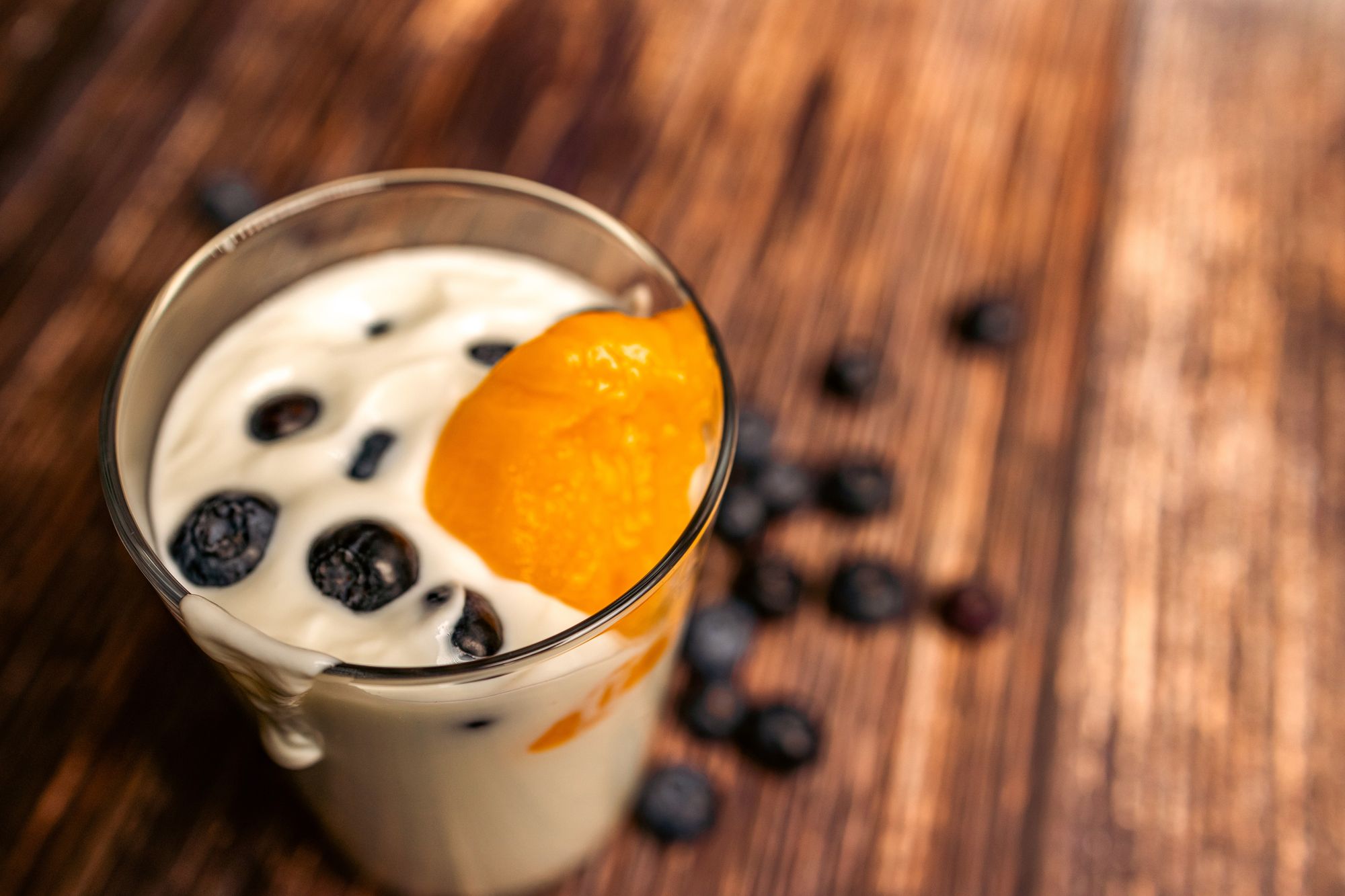
Per serving (one 12-ounce can): 0 calories, 0g fat (0g saturated fat), 0mg sodium, 0g carbs (0g fiber, 0g added sugar), 0g protein
For those who enjoy the refreshing fizz of seltzer, Humm Probiotic Seltzer offers the added benefit of 2 billion probiotics. Each can also provides 1,500% of the DV for vitamin B12, 100% DV of vitamin C, and 150% DV for vitamin D, supporting energy levels and a healthy immune system.
6) Health-Ade Kombucha, Pink Lady Apple
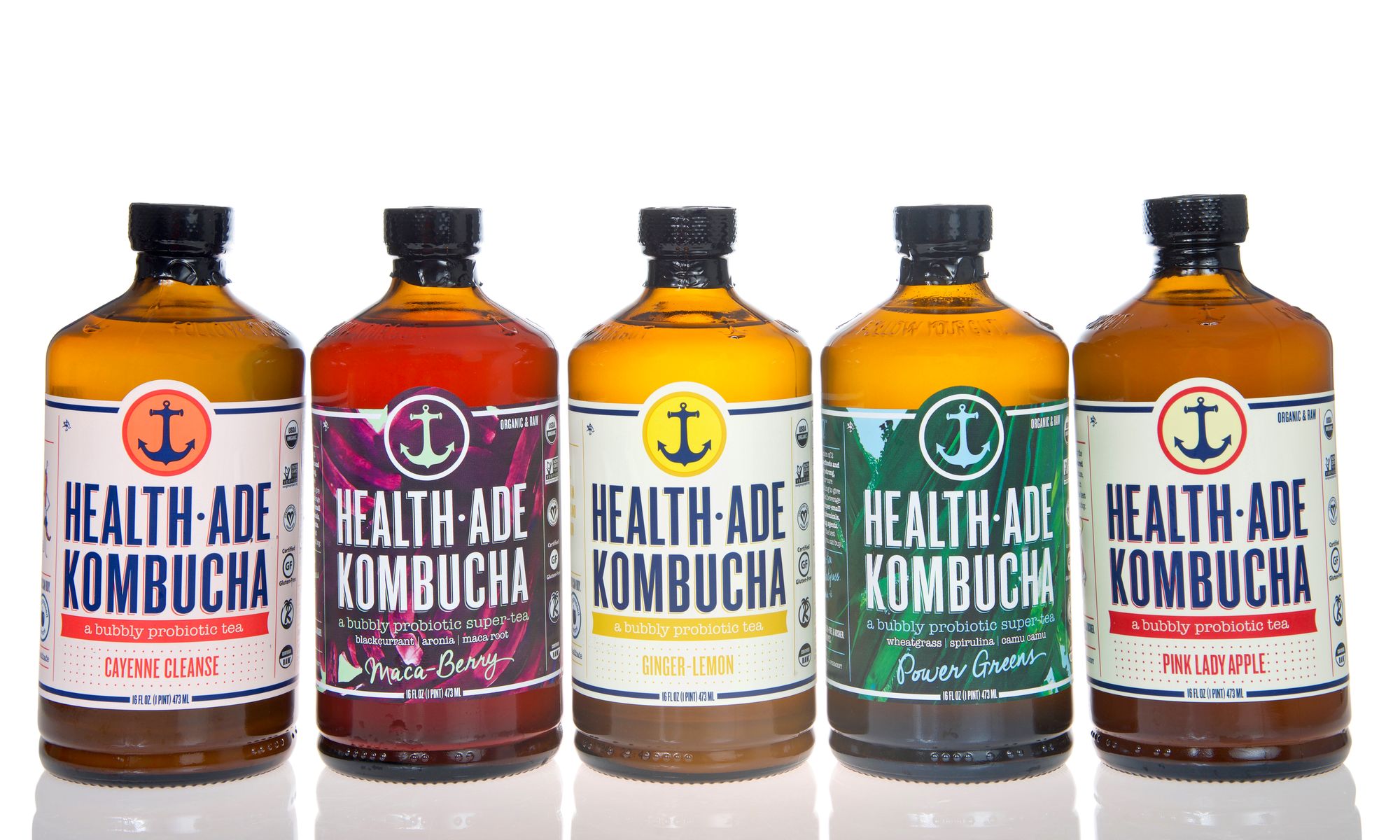
Per serving (one 16-ounce bottle): 70 calories, 0g fat (0g saturated fat), 0mg sodium, 16g carbs (0g fiber, 12g added sugar), 0g protein
Health-Ade Kombucha is a fizzy,tangy drink packed with gut-friendly bacteria. It brews with probiotics during the fermentation process, promoting a diverse microbiome. Health-Ade also adds live active cultures to their kombucha for an extra boost. As kombucha is made by fermenting tea, it offers the antioxidant benefits of tea alongside its probiotic advantages.
7) Yakult
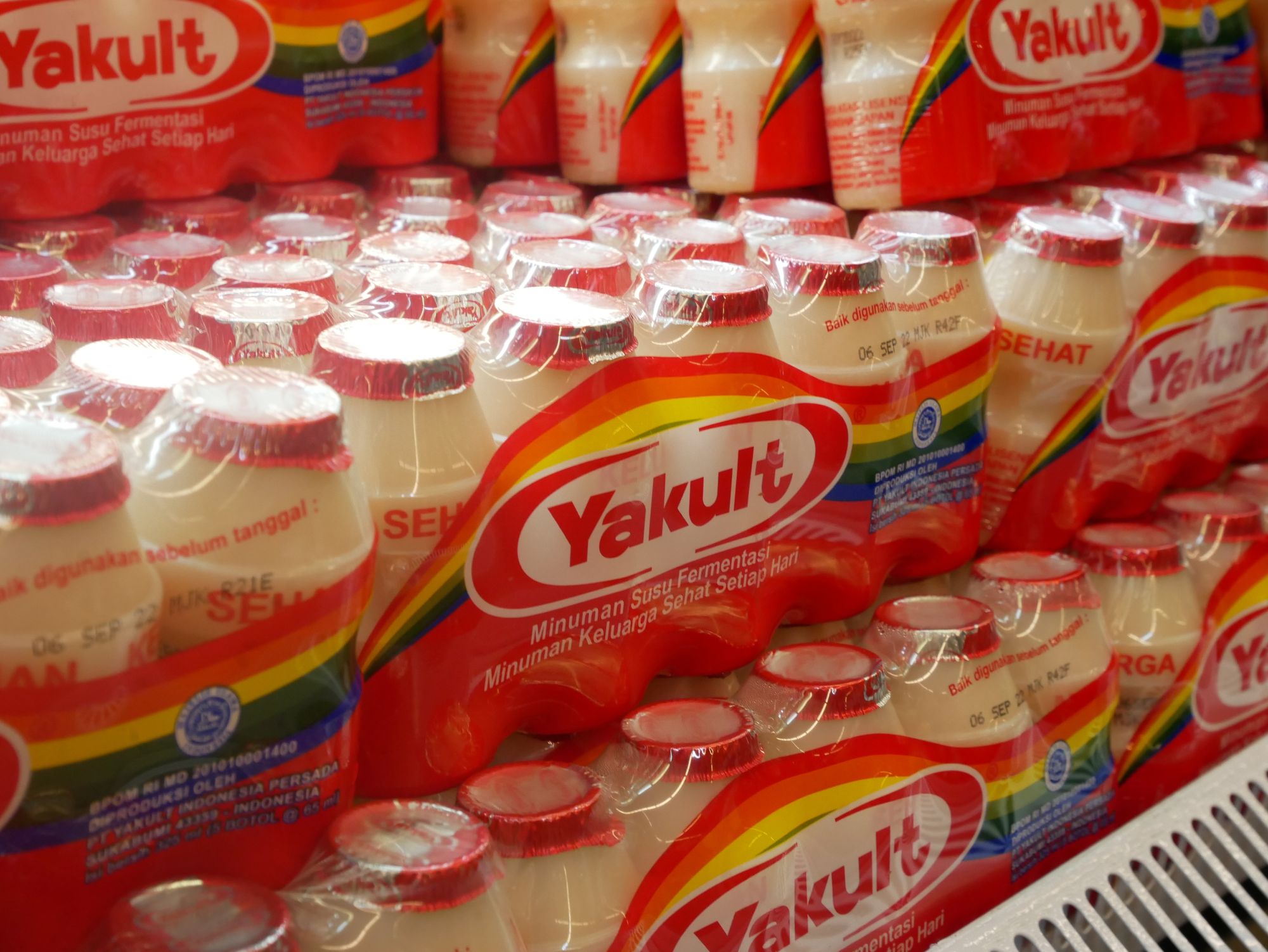
Per serving (one 2.7-ounce bottle): 50 calories, 0g fat (0g saturated fat), 15mg sodium, 12g carbs (0g fiber, 9g added sugar), 1g protein
Yakult stands out due to its specific probiotic strain, Lactobacillus casei Shirota, extensively studied for its positive effects on the gut microbiota. Yakult's fermentation process increases the number of live bacteria and enhances probiotic survival through the digestive tract, allowing them to reach the intestines and exert their beneficial effects.
8) Karma Blueberry Lemonade Probiotic Water
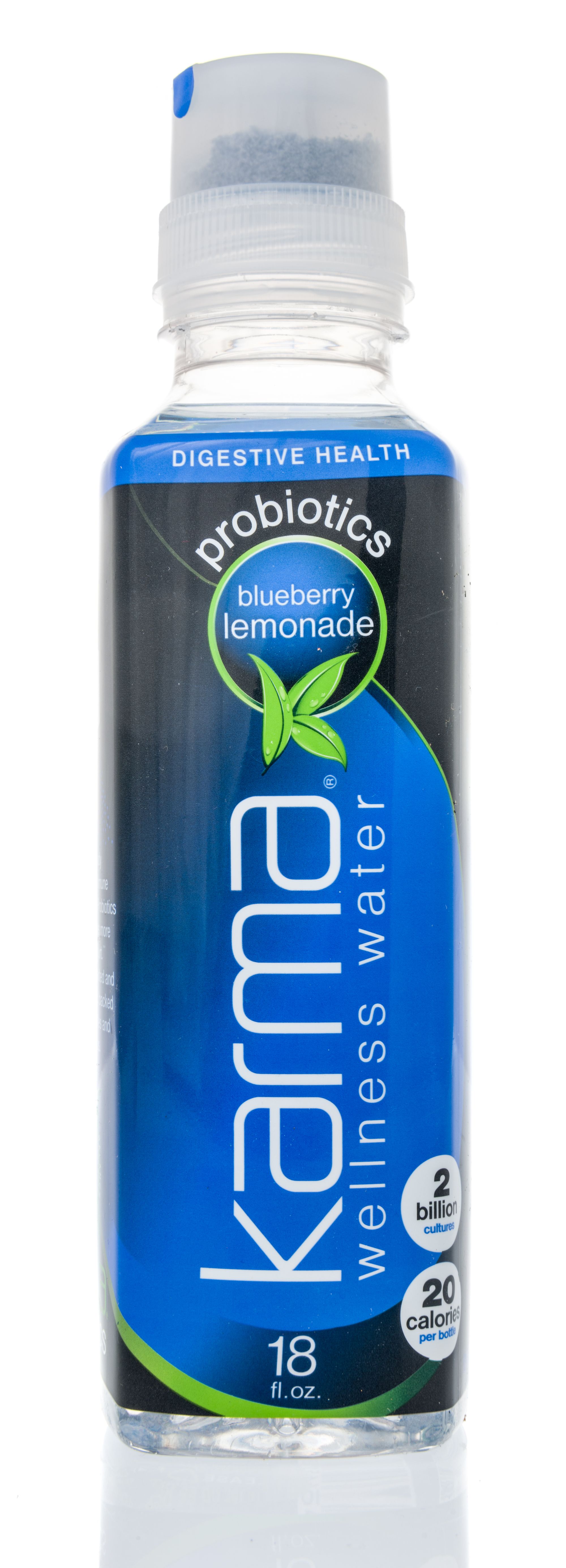
Per serving (one 18-ounce bottle): 20 calories, 0g fat (0g saturated fat), 10mg sodium, 6g carbs (0g fiber, 5g added sugar), 0g protein
Karma Probiotic Water quenches your thirst while providing the benefits of 2 billion probiotics. Its unique KarmaCap keeps the probiotics separate from the water until you're ready to drink it. With a simple twist, the probiotics are released into the water, ensuring maximum potency and freshness. Additionally, each bottle contains 100% of the DV for vitamins A, E, B6, B12, niacin, and pantothenic acid.
Probiotic Drinks to Limit or Avoid
While many probiotic drinks offer health benefits, there are some you should limit or avoid due to their nutrient profiles:
1) Tropicana Essentials Probiotic, Strawberry Banana
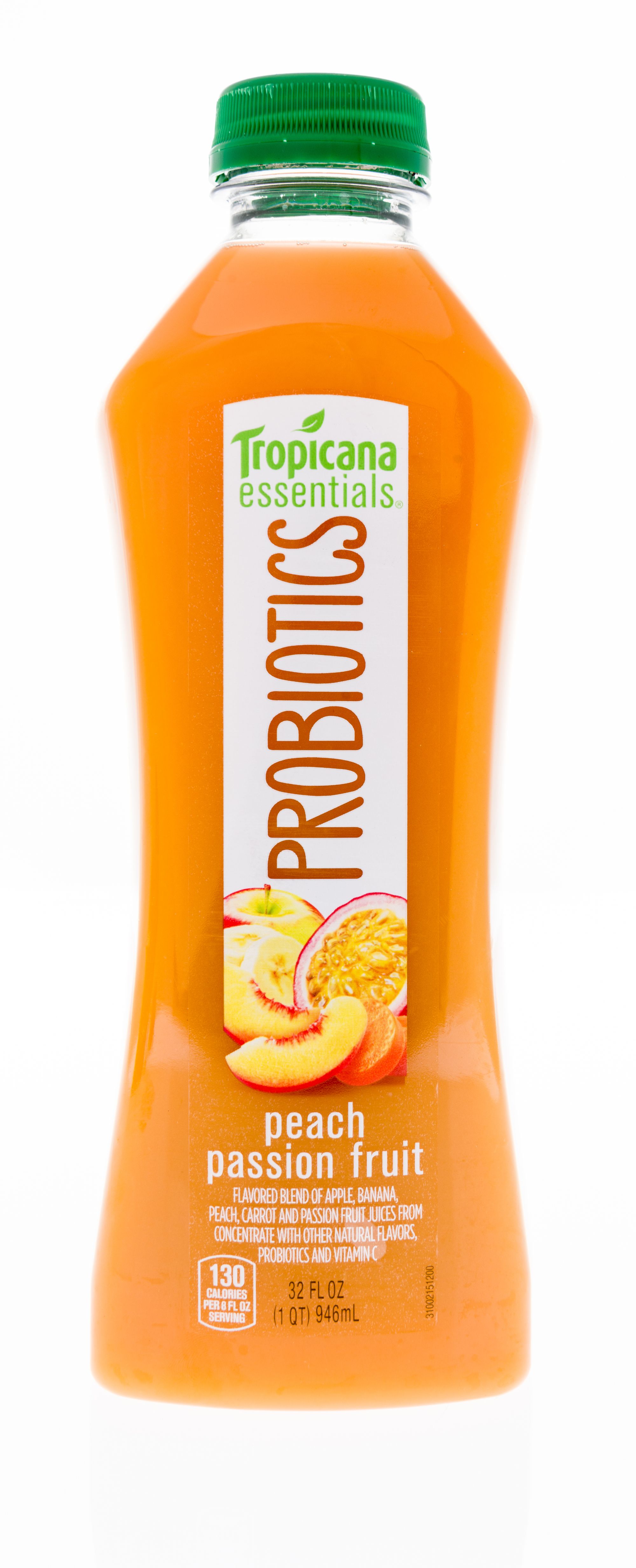
Per serving (one 8-ounce serving): 130 calories, 0g fat (0g saturated fat), 10mg sodium, 31g carbs (0g fiber, 0g added sugar), 0g protein
This product contains excessive amounts of naturally occurring sugars, outweighing the potential benefits of probiotics. Without protein, fat, or fiber to slow down sugar digestion, you may experience hunger soon after consuming it.
2) Harmless Harvest Strawberry Dairy-Free Yogurt Drink
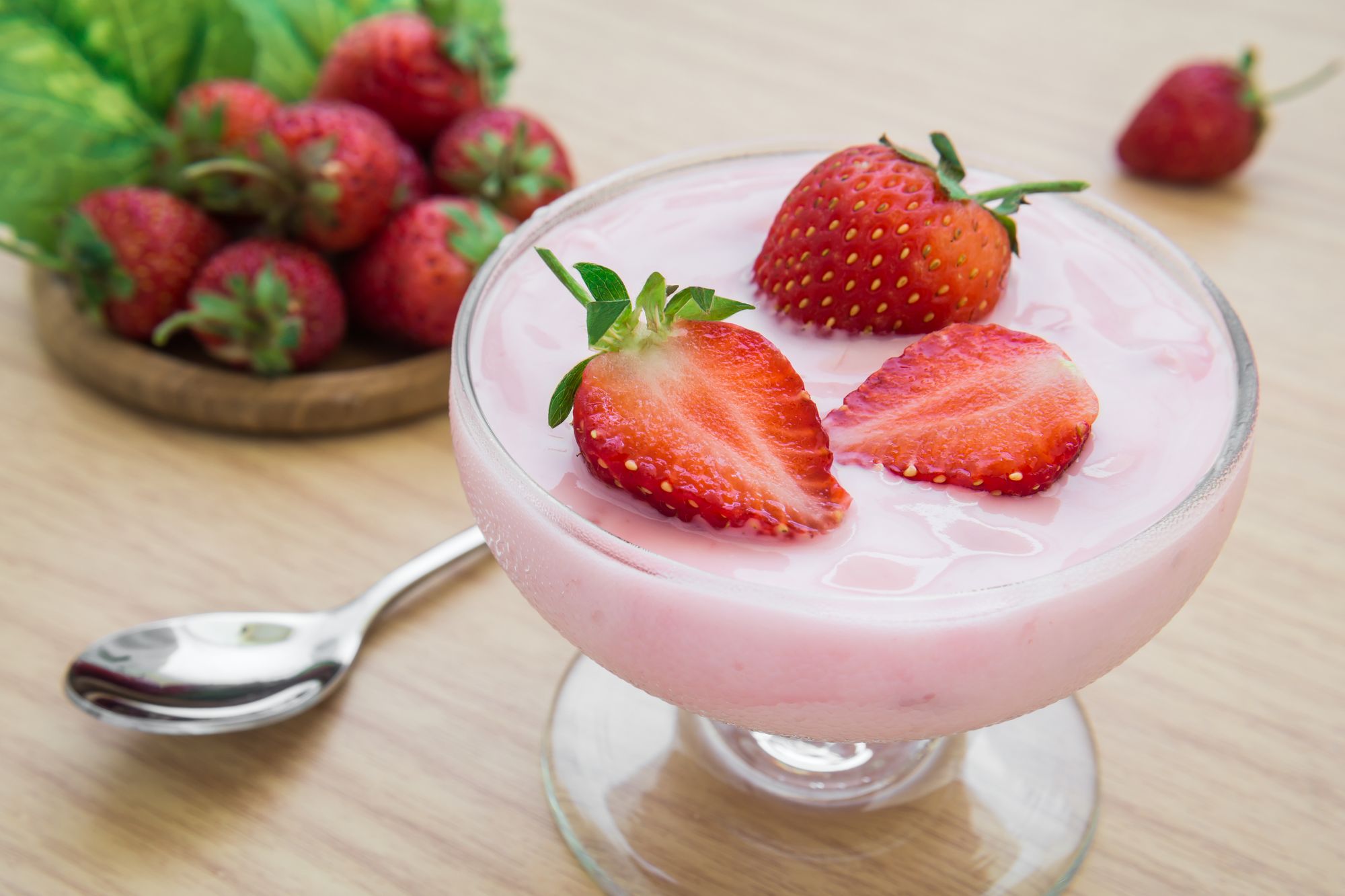
Per serving (one 8-ounce bottle): 100 calories, 5g fat (4.5g saturated fat), 35mg sodium, 15g carbs (0g fiber, 12g added sugar), 1g protein
While this dairy-free probiotic option contains billions of active cultures, it also contains 12 grams of added sugars. With only 1 gram of protein, it does not offer the same nutritional value as regular yogurt drinks.
3) DanActive Probiotic Dailies
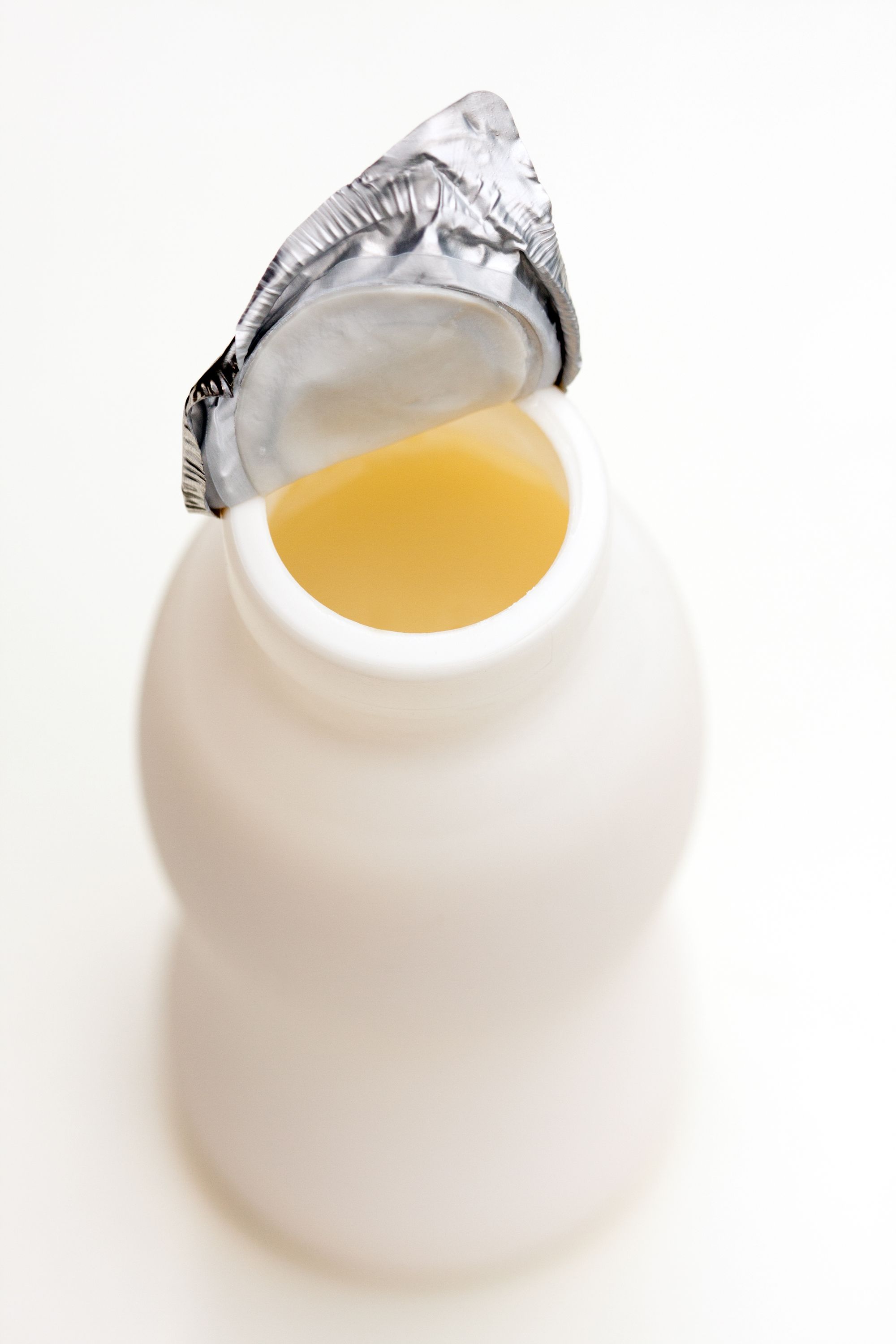
Per serving (one 3-ounce bottle): 80 calories, 1g fat (0.5g saturated fat), 40mg sodium, 13g carbs (0g fiber, 9g added sugar), 3g protein
Each serving of this drinkable yogurt contains 9 grams of added sugar. There are other probiotic yogurt drinks available with less added sugar to choose from.
By incorporating the recommended probiotic drinks into your diet and being mindful of the nutrient profiles of other options, you can support your gut health and overall well-being.

